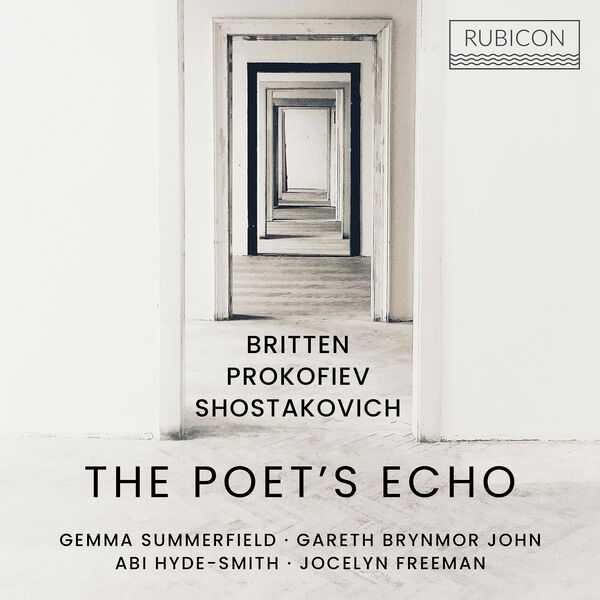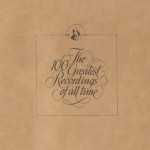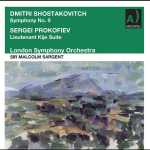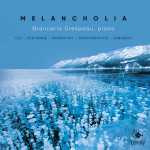

Composer: Benjamin Britten, Sergei Prokofiev, Dmitri Shostakovich
Performer: Gemma Summerfield, Gareth Brynmor John, Abi Hyde-Smith, Jocelyn Freeman
Format: FLAC (tracks)
Label: Rubicon
Catalogue: RCD1115
Release: 2023
Size: 1.17 GB
Recovery: +3%
Scan: yes
Prokofiev: Drei Romanzen auf Worte von Alexander Puschkin, Op. 73
01. I. Pines
02. II. Blushing dawn has covered the East
03. III. Into your front room
Shostakovich: Cello Sonata in D minor, Op. 40
04. I. Allegro non troppo
05. II. Allegro
06. III. Largo
07. IV. Allegro
Shostakovich: Four Romances on Poems by Pushkin, Op. 46
08. I. Rebirth
09. II. A Youth and a Maiden
10. III. Foreboding
11. IV. Stanzas
Britten: Ekho poeta (The Poet’s Echo) Op. 76
12. I. Echo
13. II. My Heart
14. III. Angel
15. IV. The Nightingale and the Rose
16. V. Epigram
17. VI. Lines Written During a Sleepless Night
This project was initially inspired by the prophetic nature of Shostakovich’s ‘Four Pushkin Romances Op 46’, which Gareth Brynmor John introduced me to in 2019. Not only was I struck by the profundity of how the poetry echoed messages of censorship and exile forward through time; but also by similarities to the cello sonata from two year prior, particularly the composer’s approach to rhythmic features, texture and tessitura. These two works are partnered on our disc by Prokofiev’s ‘Three Pushkin Romances’ which also lyrically reference Pushkin’s exile; and Britten’s ‘The Poet’s Echo’, premiered by soprano Galina Visnevskaya and cellist and pianist Mstislav Rostropovich, a dedicatee of a several cello works by the aforementioned composers.
This final work was written during a composers’ retreat to Armenia in the company of Visnevskaya and Rostropovich, thus devising a cello part for Britten’s only Pushkin cycle felt like an opportunity too good to pass by. I am hugely indebted to Abi Hyde-Smith for her collaborative approach to this process, her patience exploring a broad variety of techniques and sound worlds which resulted in the arrangement recorded on this disc, and the creative input of Gemma Summerfield as she contributed to final drafts during initial rehearsals. We would also like to extend our heartfelt thanks to Britten Pears Arts, Faber Music and Colin Matthews for their support and permission to record this new version of The Poet’s Echo.
This release is one of those rare ones organized by its piano accompanist, and it is a densely constructed and absorbing piece of work. At the center is the poet Alexander Pushkin, whose texts are set in three of the four works on the album; the fourth, the Shostakovich Cello Sonata in D minor, Op. 40, is here because pianist Jocelyn Freeman perceived connections between that work and the nearly contemporary Four Pushkin Romances, Op. 46, of the same composer. These works originated in the mid-’30s when it would have been clear to Shostakovich that the grand Soviet experiment was headed south, and indeed, his settings of Pushkin’s introspective texts are a perfect complement to the deep unease of the Cello Sonata. The theme of alienation and exile runs through the whole album, and it had certainly taken on new relevance by 2023, when the album was released (and made classical best-seller charts in the spring). The album’s finale, which provides the title, was composed by Benjamin Britten for individuals who knew a lot about alienation and exile, the soprano Galina Vishnevskaya and her husband, cellist Mstislav Rostropovich; there was no cello part in the original song cycle, but the one provided by Freeman here seems natural enough and has the effect of plunging the listener into the creative community exemplified by the works on the program, which begins with the tense but more extroverted Three Pushkin Romances, Op. 73, of Prokofiev. Gemma Summerfield, who sings the Britten, and baritone Gareth Brynmor John, heard in the Shostakovich songs, are not quite on the exalted level of Vishnevskaya, but the program holds together beautifully in Freeman’s conception, and it is reminiscent of the small gatherings where this chamber music was first heard. With Rubicon Classics providing excellent sound from the Wyastone Estate Concert Hall, this is a compelling recital of Russian song, even where some of it is by a non-Russian.



